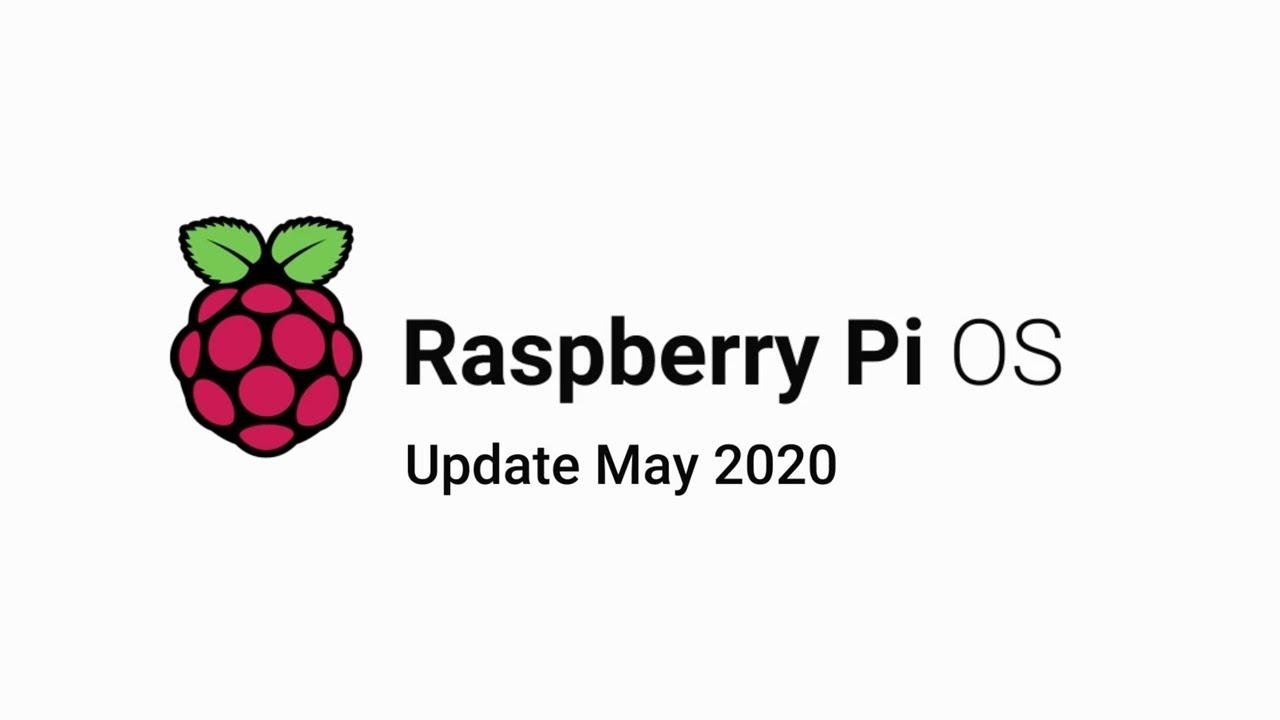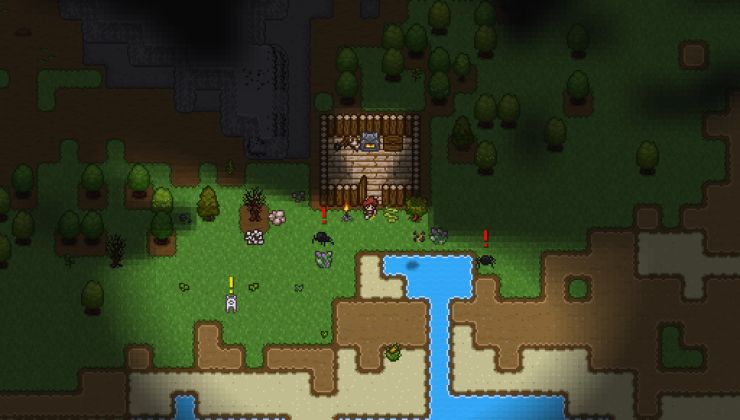The highly versatile Raspberry Pi 4 now has a new 8GB model and their official Debian-based operating system has a new 64bit version for you to play with. From running retro games, to making it into a whole gaming device with a screen and everything, the Raspberry Pi is seriously cool and now thanks to the bigger RAM in the 8GB model it can do even more fun things for you.
A model that was long rumoured but they had trouble doing it, until now. They said that while the BCM2711 chip used in the Raspberry Pi 4 actually supports up to 16GB of LPDDR4 SDRAM, the barrier was that lack of a 8GB LPDDR4 package which didn't exist but Micron stepped up with a suitable part for them.
Some adjustments were made to accomodate it, as it needed higher peak currents. So the power supply components have been shuffled around, and a removal of a switch-mode power supply from the right side with a new switcher next to the USB-C power connection. It's available right now for $75.
The Raspberry Pi OS (formerly known as Raspbian) also now has a 64bit version in Beta to fully take advantage of the extra memory. They have a video up about the latest changes to the OS as a whole for them May Update which we've included below:

Direct Link
Read more about it and pick one up on the official Raspberry Pi website.
If any of our readers are planning to pick up the RPi 8GB and / or are tinkering with a current one for some kind of gaming, do let us know what you're up to in the comments. Would love to see.
I have a raspberry pi 3b+ 2Go and a raspberry pi 4 4Go, the differences I saw:
(...)
Oh ! I don't have a RPi so i read and learn. But in another life long ago, i used to play PS1 games in EPSX on a pentium 4 @ 2,6Ghz and a GForce 5200.
I can only assume Leguondenet's experiences are not the norm, as PS1 emulation has been pretty solid even on the very weak Raspberry Pi 2, which was released 5 years ago. The Pi 4 is many times more powerful, so I would hope by now it's more powerful than a Pentium 4, while requiring a fraction of the electricity.
I was just a little disappointed with the Raspberry Pi 4 missing USB Boot support and the USB-C power supply issue.
I won't be buying another RPI until USB Boot is working from the factory.
Raspberry Foundation provides for some days a beta firmware for Pi 4 that enables RPi4 to boot directly from an USB drive:
https://www.tomshardware.com/how-to/boot-raspberry-pi-4-usb
When I say from the factory, I mean a Raspberry Pi with Firmware from the Factory that allows USB boot. On the Raspberry PI 3 B+ it just worked out of the box, without messing with the firmware.
I can only assume Leguondenet's experiences are not the norm, as PS1 emulation has been pretty solid even on the very weak Raspberry Pi 2, which was released 5 years ago. The Pi 4 is many times more powerful, so I would hope by now it's more powerful than a Pentium 4, while requiring a fraction of the electricity.
I didn't nuanced enough my last comment:
for a PS1 you can use a RPi3 (and even 2 after watching your youtube video). But if you want play PS1 with good speed and graphic quality prefer a Rpi4.
For N64, you can play just some games that don't need a lot of power but in fact don't hope to play N64 games in good conditions on a Rpi3.
Emulators version that worked on a pentium III was compatible with far less games and did not displaying games on a HD screen, was not compatible with all gamepads, with some freeze or not enough speed...I don't call that a good playing experience.
Last edited by legluondunet on 1 June 2020 at 1:34 am UTC
- 4 Go is necessary if you wish to use a Linux distribution with a graphic environment. With 2Go, you can launch one ou two Windows maximum and the desktop experience is not very fast.Can't say I've noticed that. I've been running a desktop on a basic Pi4 for about six weeks without issues. Mind you, I don't tend to have many things open at once. But Chromium and Firefox aren't exactly known for being light on memory, and I can run them simultaneously (with only one tab open in each, to be fair; I haven't tried any more).
I hope they make a Raspberry Pi 4 B+ with a 1.8ghz+ clock speed, 8gb Ram, USB Boot from the Factory, and get Hardware Acceleration 100% working. Then it will be a really great desktop PC.
Speaking from experience the RPI 4s can overclock to 2.0Ghz rather easily (provided you have the cooling capacity) though that does require editing a configuration file. I imagine once the USB boot firmware comes out of beta it'll be installed from the factory.
I use my RPI4 4GB as the ARM worker node in my mixed-architecture kubernetes cluster but would've gotten the 8GB model if it was available at launch.
- AMD Epyc 7252 (8C16T) + 64GB DDR4 (tainted master)
- AMD Ryzen Embedded R1505G (2C4T) + 16GB DDR4 - Snagged this DFI board for $100 on eBay (Retails for 300+)
- RPI4 (4C) 4GB
The only node without an SSD is the PI as I'm waiting for a cheaper NVMe Hat solution and/or the USB-boot firmware to mature.
Last edited by drlamb on 31 May 2020 at 11:03 pm UTC
Finally! We've been bottlenecked by a 32-bit os for too long. I just hope theyre making good progress on that vulkan driver.
They mentioned in a commentary while launching the Pi4 8GB that the progress is going well and that we should hear more news in the upcoming months
I have a raspberry pi 3b+ 2Go and a raspberry pi 4 4Go, the differences I saw:
What? It does not exist a Pi3 with 2GB. Old Raspberrys had a limit of 1GB
On the Raspberry Pi models I'm familiar with, the 3.5 mm audio output is pretty bad. A USB DAC can do better; audio through the HDMI* is very good, as is audio through a good HAT.
Also, a Raspberry Pi 2 or higher will handle 1080p video well as long as the player is dedicated and optimized correctly and the network is not choking the stream, but not inside a browser.**
*(For example: Playing music through Kodi, routed through the TV via either S/PDIF or ARC to a stereo/surround setup; surround output is lossy (though high quality lossy), but stereo output is not.)
**(Again, I can enjoy 1080p Blu-Ray rips streaming from my server over a 2.4 GHz N wireless or better network connection with 5.1 channel surround sound through Kodi running on a Raspberry Pi 2 or newer.)
Last edited by CFWhitman on 1 June 2020 at 3:40 am UTC
In my experience, the Raspberry Pi 2 and up work well for PS1 emulation as long as you use the right emulator (PCSX ReArmed), and you are not using all the memory for other stuff at the same time.Yep. What I can't understand is why it still struggles with the ZX Spectrum, at least using the build of FUSE in the
In my experience, the Raspberry Pi 2 and up work well for PS1 emulation as long as you use the right emulator (PCSX ReArmed), and you are not using all the memory for other stuff at the same time.Yep. What I can't understand is why it still struggles with the ZX Spectrum, at least using the build of FUSE in theRaspbianRaspberry Pi OS repos. I'm pretty sure there's a homebrew Spectrum emulator for the PS1. There's no way a modern ARM device should have trouble with such a bare-bones Z80 machine.
I haven't tried emulating the ZX Spectrum on a Rapberry Pi. If FUSE doesn't work well, I would speculate that it's really not optimized for the hardware at all and is depending on it just being such an easy system to emulate. There is also ZEsarUX for the Pi and even ZXBaremulator if you want to try running an emulator directly on the hardware (with no Linux in between), but I haven't tried them.
So you could now run full performance 64-bit windows on this thing or what?
I mean I'll take 64-bit linux any day of course, but windows would make for some interesting gaming benchmarks :D
Problem is that you'd need to compile and optimize the games for ARM. So it might be feasible for some FOSS games, but it's unlikely to happen for any proprietary game (those are all x86).
Nonetheless an interesting idea :)
Last edited by iskaputt on 2 June 2020 at 10:04 am UTC
Yes, I came to much the same conclusion. I usually use ZEsarUX elsewhere, but it's not in the RPiOS repos (at least, not last time I checked).I haven't tried emulating the ZX Spectrum on a Rapberry Pi. If FUSE doesn't work well, I would speculate that it's really not optimized for the hardware at all and is depending on it just being such an easy system to emulate. There is also ZEsarUX for the Pi and even ZXBaremulator if you want to try running an emulator directly on the hardware (with no Linux in between), but I haven't tried them.In my experience, the Raspberry Pi 2 and up work well for PS1 emulation as long as you use the right emulator (PCSX ReArmed), and you are not using all the memory for other stuff at the same time.Yep. What I can't understand is why it still struggles with the ZX Spectrum, at least using the build of FUSE in theRaspbianRaspberry Pi OS repos. I'm pretty sure there's a homebrew Spectrum emulator for the PS1. There's no way a modern ARM device should have trouble with such a bare-bones Z80 machine.
Yes, I came to much the same conclusion. I usually use ZEsarUX elsewhere, but it's not in the RPiOS repos (at least, not last time I checked).I haven't tried emulating the ZX Spectrum on a Rapberry Pi. If FUSE doesn't work well, I would speculate that it's really not optimized for the hardware at all and is depending on it just being such an easy system to emulate. There is also ZEsarUX for the Pi and even ZXBaremulator if you want to try running an emulator directly on the hardware (with no Linux in between), but I haven't tried them.In my experience, the Raspberry Pi 2 and up work well for PS1 emulation as long as you use the right emulator (PCSX ReArmed), and you are not using all the memory for other stuff at the same time.Yep. What I can't understand is why it still struggles with the ZX Spectrum, at least using the build of FUSE in theRaspbianRaspberry Pi OS repos. I'm pretty sure there's a homebrew Spectrum emulator for the PS1. There's no way a modern ARM device should have trouble with such a bare-bones Z80 machine.
That's correct; it's not in the repositories. However, there is a binary of the latest stable version for the Raspberry Pi on the ZEsarUX GitHub site in the download section (the latest beta doesn't have a Raspberry Pi build; of course you could build it yourself if you are familiar with compiling software). It's just a zip, but I think it can just be unzipped and run from the resulting directory. I haven't downloaded it and tried it, though. There's probably a README with more information in the archive.
I thought about building it, because it's not something I'm unfamiliar with after 15 years on Linux but honestly, once you install all the build dependencies... it's not that important to me. But the binary sounds interesting. I'll give it a try sometime. Thanks for the info. :)Yes, I came to much the same conclusion. I usually use ZEsarUX elsewhere, but it's not in the RPiOS repos (at least, not last time I checked).That's correct; it's not in the repositories. However, there is a binary of the latest stable version for the Raspberry Pi on the ZEsarUX GitHub site in the download section (the latest beta doesn't have a Raspberry Pi build; of course you could build it yourself if you are familiar with compiling software). It's just a zip, but I think it can just be unzipped and run from the resulting directory. I haven't downloaded it and tried it, though. There's probably a README with more information in the archive.
Last edited by Dunc on 3 June 2020 at 12:00 pm UTC











See more from me